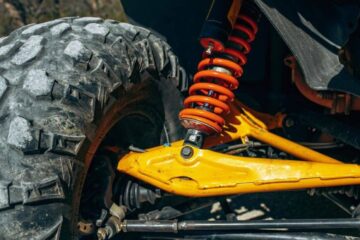Have you ever bought a car, only to realize the spending was just getting started? You’re not alone. Many think the hard part ends with getting the keys, but reality quickly shows up—with repairs, fees, and surprise costs they never mentioned in the commercials.
Owning a car today isn’t just about monthly payments. It’s a long-term financial commitment, packed with hidden costs that sneak up when you least expect them. Rising living expenses, pricey tech upgrades, and unpredictable gas prices make it even trickier.
In this blog, we will share the hidden costs of car ownership that most people overlook—and how knowing them can save you a lot of frustration (and money) down the road.=
The True Price Behind Those New Car Smells
We all love that fresh-off-the-lot smell. It’s pure magic. But it’s also pure marketing. A brand-new car smells like opportunity, but it also smells like unseen bills stacking up behind the scenes.
First, there’s depreciation. The second you drive off the lot, your car loses value faster than a dropped phone loses a charge. Most new cars drop by about 20% in value the first year. That shiny SUV you bought for $35,000? You could sell it six months later and struggle to get $28,000.
Then there’s the matter of taxes, registration, and documentation fees. Depending on where you live, these can add thousands to your cost before you even drive off. States and counties aren’t shy about adding their piece to the pie.
Maintenance also comes creeping in earlier than you think. Even basic tasks like oil changes, brake pad replacements, and tire rotations add up. And newer models packed with sensors, cameras, and smart technology? They often mean pricier repairs when even a tiny thing goes wrong.
You also can’t forget about insurance. Getting a car insurance quote is one of the first real moments when you realize car ownership isn’t just about making a payment—it’s about protecting yourself from the costs you didn’t see coming. A good quote not only gives you coverage but can sometimes reveal just how expensive accidents, theft, or damage can be when you least expect it.
Understanding these early costs can help you choose wisely. It’s not just about whether you can afford the car today—it’s about whether you’ll still be smiling about it a year from now.
Maintenance Is a Relationship, Not a One-Time Thing
Think of car maintenance like watering a houseplant. You can’t just do it once and hope for the best. You have to check on it, adjust to the seasons, and fix small problems before they turn into dead leaves—or in this case, dead engines.
Regular oil changes, tire checks, brake inspections, and battery replacements are all part of car ownership. Skip them, and you risk much bigger—and more expensive—problems down the line.
And it’s not just about keeping your car running. Many maintenance issues, if ignored, can wreck your fuel efficiency, make your ride unsafe, or even void parts of your warranty. That $40 oil change you skipped? It could turn into a $4,000 engine replacement faster than you think.
Today’s vehicles also come loaded with tech, and while that’s great for safety and comfort, it’s not great for the repair bill. Touchscreens, backup cameras, lane sensors—none of these are cheap to fix. One cracked sensor could mean a hefty repair cost that old-school drivers never had to worry about.
The real trick is to budget for maintenance the way you budget for groceries. It’s not a surprise if you know it’s coming. It’s part of keeping your investment healthy, reliable, and ready for all the adventures ahead.
The Rising Price of Simply Being on the Road
You might not realize it, but even just being out and about in your car costs more than you think. Rising gas prices get the headlines, but they aren’t the only sneaky expenses hiding in plain sight.
Tolls, parking fees, emission tests, city taxes for congestion zones—some cities seem to have turned driving into a competitive sport where the goal is to dodge fees before they catch up. And good luck finding free parking in any major city without feeling like you’ve won the lottery.
Wear and tear from road trips, potholes, and even bad weather adds up too. Tires wear down faster if you live in areas with snow, ice, or extreme heat. Batteries die quicker in cold climates. Salt from winter roads can eat away at your car’s frame if you don’t clean it often enough.
And let’s not even get started on tickets. One wrong turn into a bus lane, one forgotten expired meter, and suddenly you’re forking over money you hadn’t planned to spend.
Owning a car isn’t just about the car itself. It’s about all the little environmental and social costs that come with using it every day.
When Upgrades Become Obligations
Car ownership today isn’t just about maintenance—it’s about keeping up. As technology moves fast, what felt cutting-edge two years ago now feels basic.
Dealerships, insurance companies, and even some states push for newer, safer, greener vehicles. It’s a good thing in many ways, but it also pressures car owners into constant upgrades.
Safety recalls, emissions standards, better fuel efficiency requirements—these can turn your perfectly good car into something that feels outdated or, worse, non-compliant. Even app updates for car software now require attention. Miss an update, and you might find that your car’s features glitch or lag.
For some owners, keeping up means added costs for software subscriptions, special maintenance, or even replacing a car sooner than planned. It’s not just mechanical anymore. It’s digital, and digital usually means a long-term subscription attached.
Thinking Long-Term About the Car You Choose
One of the smartest things you can do before buying a car is to look past the showroom shine and ask a simple question: What will this cost me over five years?
Many financial experts now encourage buyers to calculate the total cost of ownership. This includes loan payments, taxes, maintenance, insurance, fuel, and expected depreciation.
Tools that show these long-term costs are more popular than ever because they offer a reality check before excitement takes over. What seems affordable monthly could be a heavy burden when everything else is factored in.
In an era where financial stability feels more important than ever, thinking beyond the short term matters. It’s not about denying yourself the car you want. It’s about making sure the car you want doesn’t become the thing that drains your budget, your energy, and your peace of mind.
Smart planning, honest budgeting, and realistic expectations make car ownership not just doable but truly enjoyable. And that’s the kind of freedom worth driving toward.




